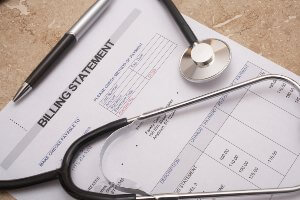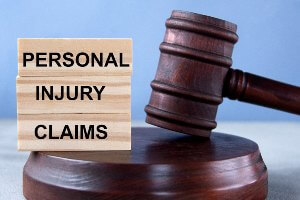Keeping Track of Your Medical Costs After Being Involved in a Minneapolis Crash
 It is only natural to feel overwhelmed after getting injured in a car crash. The collision itself is a traumatic experience that leaves many people in a state of shock. The weeks and months following a car crash are often physically, financially, and emotionally taxing.
It is only natural to feel overwhelmed after getting injured in a car crash. The collision itself is a traumatic experience that leaves many people in a state of shock. The weeks and months following a car crash are often physically, financially, and emotionally taxing.
Keeping things organized, such as your medical expenses, can be a challenge. At TSR Injury Law, we know what crash victims go through. We have decades of experience helping people through the legal process and securing the compensation they need to move forward.
Below, our Minneapolis-based car accident lawyers discuss the importance of tracking car crash medical expenses and provide tips on how to keep your bills and receipts organized. If you were injured by another driver’s negligence, call us to learn how we may be able to help.
No upfront costs. More than $1 billion recovered for clients. Phone: (612) TSR-TIME.
Why Crash Victims Should Track Their Medical Expenses
While there are some exceptions, you should be able to seek compensation for all your crash-related medical costs. However, you are going to need documentation of these expenses to include them in your claim for compensation. The insurance company is not going to pay for undocumented expenses or medical care.
Accurate documentation of your medical costs and care also helps to prove the severity of your injuries and enhances your credibility. A paper trail shows the insurance company you are taking the situation seriously because you are following through on your treatment and are taking the appropriate steps to make the best recovery possible.
Insurance companies love to claim victims are trying to inflate their damages, so they can get more money than they need. It is much harder for them to make this argument when your lawyer can present a detailed record of reasonable medical treatment.
What Medical Expenses Should You Track?
Crash victims may have a wide range of medical expenses. It is imperative to track every cost, no matter how small, including, but not limited to:
- Emergency room visits: This includes bills for initial treatment and stabilization of your injuries.
- Hospital stays: Charges for overnight or prolonged hospital admissions.
- Surgical procedures: There are numerous expenses associated with surgery, as various medical professionals and tests may be involved.
- Medications: Prescription and over-the-counter drugs may be necessary, such as medications used to manage pain or prevent infection.
- Physical therapy or rehabilitation services: For example, some victims need physical therapy to rebuild their strength and improve their mobility.
- Specialist consultations: Victims may incur fees for seeing specialists, like orthopedists or neurologists.
- Chiropractic care: Many people find chiropractors helpful in addressing neck and back pain following a crash.
- Mental health counseling: Crashes are traumatic experiences that can leave lasting psychological and emotional scars. Counseling can help victims work through these issues, helping them to improve their quality of life.
- Medical equipment: These costs may include things like crutches, braces, wheelchairs or home modifications.
- Follow-up care: This includes charges for ongoing treatment and checkups. It is important to note that victims should do their best not to miss appointments. If something comes up, reschedule the appointment. Skipping appointments affects your credibility in the eyes of the insurance company.
- Travel expenses: Victims may be compensated for costs associated with getting to and from medical appointments when doctors are a significant distance away from where victims live.
- Cost to hire a caregiver: Some crash victims may need to hire a caregiver. This could be a short-term expense or one that lasts a significant amount of time.
How To Track Car Crash Medical Expenses
Efficient tracking of medical expenses requires organization and diligence. However, there are various ways to track expenses.
For example, you can keep everything together in one folder to avoid losing anything. This includes medical bills, receipts, correspondence from the insurance company and payment records.
You could maintain a diary of your medical care that includes documentation of your expenses. In the diary, you could provide more information about each doctor’s visit. You can also explain how your injuries affect you each day. This narrative can be invaluable in personalizing and substantiating your claim.
There are smartphone apps that you can use as well, as they are specifically designed to allow you to track medical expenses. These apps may allow you to filter and categorize your expenses. Also, paper records could get lost or thrown away by accident. Digitizing your medical documents may be better for data security.
Keeping the above information in mind, the easiest way to keep track of your medical expenses is to hire an experienced attorney at TSR Injury Law. Our team of lawyers and paralegals can track your medical expenses for you throughout your case, making sure the right parties are paying those bills as you work on getting better. We will also be in contact with your medical providers to ensure they know who to bill, so you don’t get stuck with unpaid medical bills.
Let TSR Injury Law Take on the Insurance Company. Call for Legal Assistance
At TSR Injury Law, we are dedicated to guiding our clients through the complexities of the post-crash recovery process. Our firm is committed to securing full compensation for your damages to help you and your family move forward.
If you or a loved one has been involved in a car crash in Minneapolis or elsewhere in Minnesota, reach out to TSR Injury Law to find out how we may be able to help. There are no upfront costs for our services, and we do not get paid unless our clients are compensated.
We are ready to take your call: (612) TSR-TIME.


 Unfortunately, there are a lot of myths and misconceptions about filing a car crash claim after a crash in Minneapolis. These misguided beliefs can cause crash victims to make bad decisions that hurt their chances of recovering favorable compensation.
Unfortunately, there are a lot of myths and misconceptions about filing a car crash claim after a crash in Minneapolis. These misguided beliefs can cause crash victims to make bad decisions that hurt their chances of recovering favorable compensation. Causation is a central aspect of a personal injury case. Causation connects an injury to the actions of another person, such as a driver or property owner.
Causation is a central aspect of a personal injury case. Causation connects an injury to the actions of another person, such as a driver or property owner.